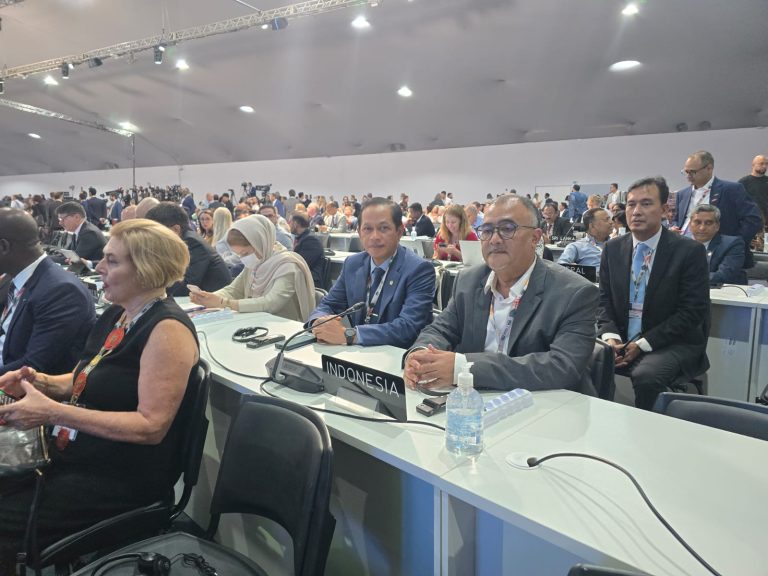Jakarta – At this year’s 30th United Nations Climate Change Conference (COP30) in Belém, Brazil, Indonesia is no longer merely a participant in the global climate forum. The Indonesian delegation stated that they came with a major mission: to strengthen global climate diplomacy leadership through four main pillars that guide the direction of negotiations.
The Minister of Environment and Head of the Environmental Management Agency (BPLH), Hanif Faisol Nurofiq, in his statement on Wednesday, 12 November, emphasised that Indonesia’s presence this time was not to “liven up” the forum, but to ensure that every international decision favoured the interests of developing countries and the people most affected by climate change.
“We are not here to cause a commotion; we are here to negotiate. Every clause that is negotiated will have an impact on our people and our environment,” Hanif asserted.
He explained that, of the seven negotiation agendas proposed by the Indonesian delegation, four main pillars would be the focus of COP30. These four pillars are believed to determine the direction of global climate policy while strengthening Indonesia’s position as a leader in the Global South.
First, the Global Stocktake (GST). Indonesia is pushing for a fair evaluation of developed countries’ commitments to fulfil their funding and technology-transfer promises. “Essentially, we want developed countries to take historical responsibility, not just assess technical achievements in mitigation,” said Hanif.
Second, National Adaptation Plans (NAPs). As an archipelagic country vulnerable to climate crises, Indonesia demands transparent and accessible adaptation funding mechanisms. These funds are expected to finance concrete projects, such as coastal protection, food security, and water resource management.
Third, Just Transition. Indonesia emphasises the importance of ensuring that the transition to a green economy does not leave vulnerable groups behind, including workers in the fossil fuel sector and traditional industries. The government is promoting reskilling schemes and the creation of new green jobs.
Fourth, Global Goal on Adaptation (GGA). Indonesia proposes setting measurable global adaptation targets, equivalent to the 1.5°C global warming mitigation target. “With clear targets, the world can effectively mobilise resources to strengthen resilience to the impacts of climate change,” said Hanif.
Hanif added that the success of Indonesia’s diplomacy at COP30 not only had an impact on Indonesia’s political position in the world but also determined the international support that would be received in implementing the climate agenda domestically.
These four main pillars complement three other technical agendas promoted by the Indonesian delegation, including climate financing, carbon market mechanisms, and clean technology cooperation.
“These negotiations will be a test of Indonesia’s climate leadership. We want to show that developing countries are also capable of driving global solutions, not just suffering the consequences,” Hanif concluded. (Hartatik)
Banner photo: Environment Minister Hanif Faisol Nurofiq with the Indonesian delegation at the 30th United Nations Climate Change Conference (COP30) in Belém, Brazil, 10 November 2025. Source: Ministry of Environment.















